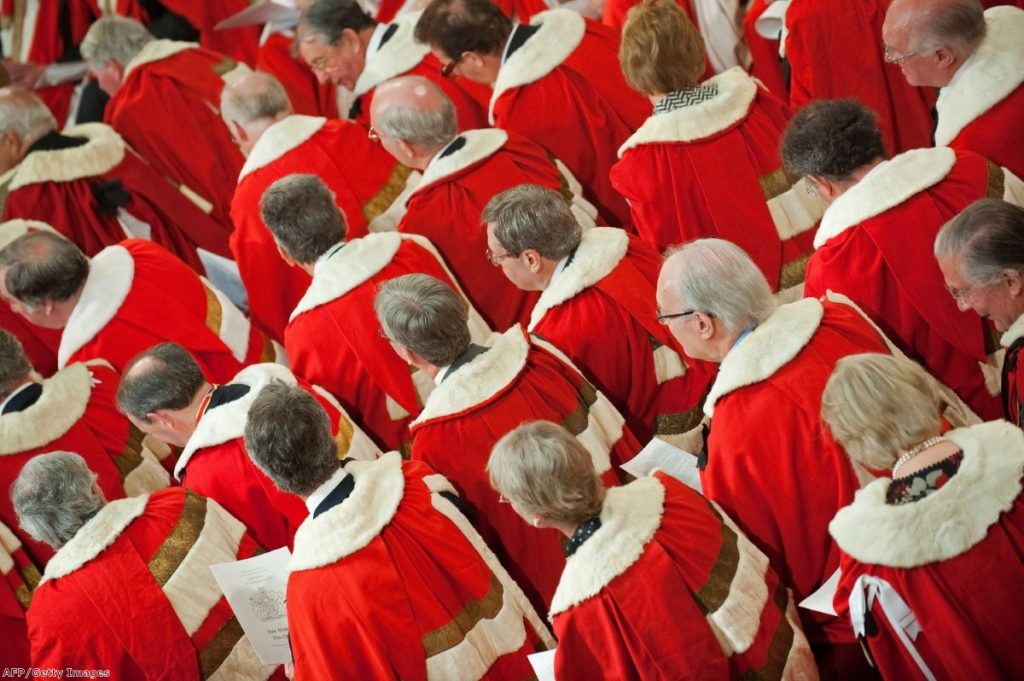Next battleground: Peers gather to take on NHS reforms
By Ian Dunt Follow @IanDunt
Experts have issued a last-gasp warning to the government as NHS reforms go to the Lords in what is expected to be a crunch vote.
Ministers are preparing to give ground on specific areas of the health and social care bill in order to stave off a defeat to a coalition of Liberal, cross-bench and Labour peers.
"It is perfectly clear – as the prime minister is acutely aware – that the British public does not support the privatisation of the NHS, and it is a matter of fact that no one ever voted for it, and so this current bill has no democratic mandate whatsoever," a collection of 60 leading medical professionals wrote to the Independent newspaper.


"No one is against reform and change, but the NHS is too important and valuable to our society to be transformed forever in this unpopular, undemocratic way."
The consultants, surgeons, psychiatrists and paediatricians who signed the letter join a group of 400 health professionals and academics who wrote to peers last week urging them to vote down the bill.
The Royal College of Nursing and Royal College of GPs also oppose the reforms.
Activists occupied Westminster Bridge over the weekend as they sought to turn up the pressure on the government, which has already had to pause the legislation and water it down in a bid to placate critics.
Two cross-bench peers – Lords Owen and Hennessey – have tabled an amendment to send the bill to a special select committee allowing witnesses to give evidence, a move that would see the reforms subject to further scrutiny and delay.
Peers are particularly concerned about a clause removing the health secretary's role to provide universal care, potentially opening the door to greater local differences in quality of care. There are also persistent concerns about the role of Monitor, the NHS watchdog, and provisions to encourage competition.
Lib Dems' Lords health spokeswoman Baroness Williams is leading efforts to gut further clauses from the bill, particularly on the issue of universal care.
Speaking at the opening of the debate, Conservative health minister Lord Howe argued it was absurd to pretend that one individual could legally preside over an organisation as complex and vast as the NHS.
Actual responsibility lies in the primary care trusts (PCTs), he continued.
Labour's Lord Rea argued the Conservatives left plans for NHS reform out their manifesto because they thought it would lose them the election.
"We have a bill that was expressly ruled out by the words in David Cameron's speech and subsequently in the coalition agreement," he added.
"It seems that there was deliberate concealment of what was planned."
Baroness Thornton, shadow health minister, said: "People did not expect, did not vote for and do not want these changes.
"The government was not elected to do this; they do not have the electorate’s consent."
Labour plans to back the delay amendment put forward by Lords Owen and Hennessey but new health secretary Andy Burnham sidestepped that move this weekend with a pledge to back GP-commissioning if the government agrees to drop the bill altogether.
Ministers are expected to give ground on concerns around the role of the health secretary with an agreement to spell out more clearly his legal duties towards the NHS.
That may not be enough to placate the range of critics opposed to the bill and ministers are understood to be concerned that they may be unable to prevent another delay to the legislation.
Some 100 peers have requested to speak during the Lords second reading debate, which will take place today and tomorrow.












